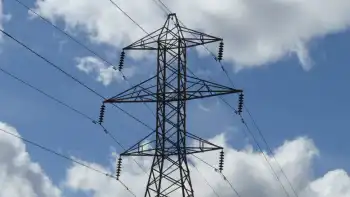Legislature wants Virginians to cut their electricity usage by 10 per cent over 15 years
Speakers told state regulators studying ways to reduce Virginia electricity use that consumers can look in the mirror for part of the solution. About 80 individuals and organizations showed up at the State Corporation Commission's Richmond headquarters to help its staff work on a conservation goal. The General Assembly this year set a goal of cutting Virginians' electricity use in the next 15 years by 10 percent from 2006 levels.
The goal is included in a law ending the state's experiment with electric deregulation. The law says it is in the public interest to promote energy conservation and efficiency, using utilities and public or private organizations to get the job done.
The SCC's role is to determine whether the 10 percent reduction can be accomplished cost-effectively and, if not, what the appropriate goal should be. Lawmakers also asked the commission to identify ways to achieve the conservation goal. Howard Spinner, director of the SCC's division of economics and finance, said that with re-regulation, getting electricity pricing right is critical to giving consumers an accurate idea of the cost of electricity and the benefits from conserving it. "If we don't get the pricing right, all the results we get (from conservation) will not be the best," he said. Some meeting participants suggested that consumers need to conserve first at home.
Others said the state needs to establish a public-interest fund to promote conservation, perhaps financed with a small fee on monthly power bills. "Serious energy conservation and efficiency must begin at home and workplace," said Robert Burnette, director of energy conservation for Dominion Virginia Power. "Consumer lifestyle and behavior changes will be required if energy conservation programs a e to achieve sustainable, long-term success." Conservation will not eliminate the need for new power plants or transmission lines in the short run, but as consumers embrace conservation and new, efficient technologies are implemented, major utility projects might be delayed or eliminated, he said.
Others worried that the SCC's recommendations not go overboard. Barry Thomas, chief lobbyist for Appalachian Power, said his utility's large business customers are concerned that demands for large-scale conservation could ruin their businesses. The SCC staff plans at least one more meeting of its work group, on Aug. 23. It must complete its report for the governor and General Assembly by mid-December.
Related News

US Approves Rule to Boost Renewable Transmission
WASHINGTON - On May 13th, 2024, the US took a monumental step towards its clean energy goals. The Federal Energy Regulatory Commission (FERC) approved a long-awaited rule designed to significantly expand the transmission of renewable energy across the nation's power grid. This decision aligns with President Biden's ambitious plan to achieve net-zero carbon emissions by 2050, with renewable energy playing a central role.
The new rule tackles a critical bottleneck hindering the widespread adoption of renewables – transmission infrastructure. Unlike traditional power plants like coal or natural gas that run constantly, solar and wind power generation fluctuates with weather conditions.…





